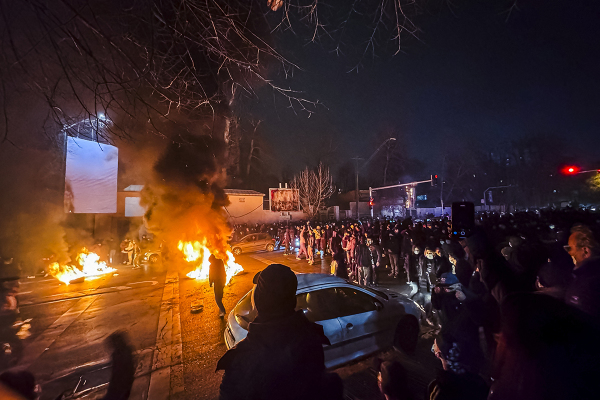Attacks Decrease in Iraq; Home-Made Bombs Pose Threat
Iraq and the United States have combined efforts in an attempt to thwart Iran from providing weapons to militants; however, it is believed that household bombs are still posing a formidable threat.
U.S. troops survived a tumultuous summer with a series of attacks, including one on June 6 which killed five U.S. soldiers in their Baghdad living quarters and another firefight in Wardak Province in mid-September.
Iraq’s political sway and scouting of Iran’s potential rocket arsenals have helped decrease attacks beginning in September.
However, Iran’s innovative use of homemade bombs remain a significant threat.
The IRAM “remains a serious and evolving threat to U.S. forces for the foreseeable future,” Triton Intelligence Report has claimed.
IRAMS, also known as lob bombs, are improvised rocket assistant munitions, usually made from propane tanks, which are drained and packed with explosives, or even from household water heaters loaded with explosives. They can reach a range of six miles.
These homemade concoctions pose as dangerous threats to U.S. forces because they are not easily regulated by Iraq or the United States; their everyday use conceal them from being confiscated or targeted as weapons.
On August 29, Iran’s defense minister Brigadier General Ahmad Vahidi announced the beginning of a mass production of portable rockets, built to target armored vehicles such as tanks and ammunition compounds from as far as 1,300 meters.
In late August Iran’s president Mahmoud Ahmadinejad also announced three new defense projects, including a marine cruise missile holding 220 kg warheads.
Restless Americans await complete troop removal from Iraq, which now sits at 40,000 troops. Obama announced a goal to have troops out by December 31, 2011, but many critics see this as an attempt at earning support for re-election.
The problem runs deeper.
America’s presence in Iraq serves as a delicate balance in the Middle East feud. Iran’s motives remain suspiciously unclear, and critics worry that removal of troops from Iraq will make the country weak, and Iran will be able to occupy Iraq’s soil and garner dangerous power in the Middle East.
Evidently, Ahmadkinejad’s recent announcement of more weapon production does not indicate passivity or compromise arriving any time soon.
While Iraq and Iran push and pull for compromise and power, critics begin to question the plausibility of compromise and mutual existence.
“It is time to appreciate that the only manner of inducing meaningful change in the Islamic Republic's behavior without the resort to war is to otherwise imperil its very existence,” said Kenneth M. Pollack, director of the Saban Center for Middle East Policy.





















